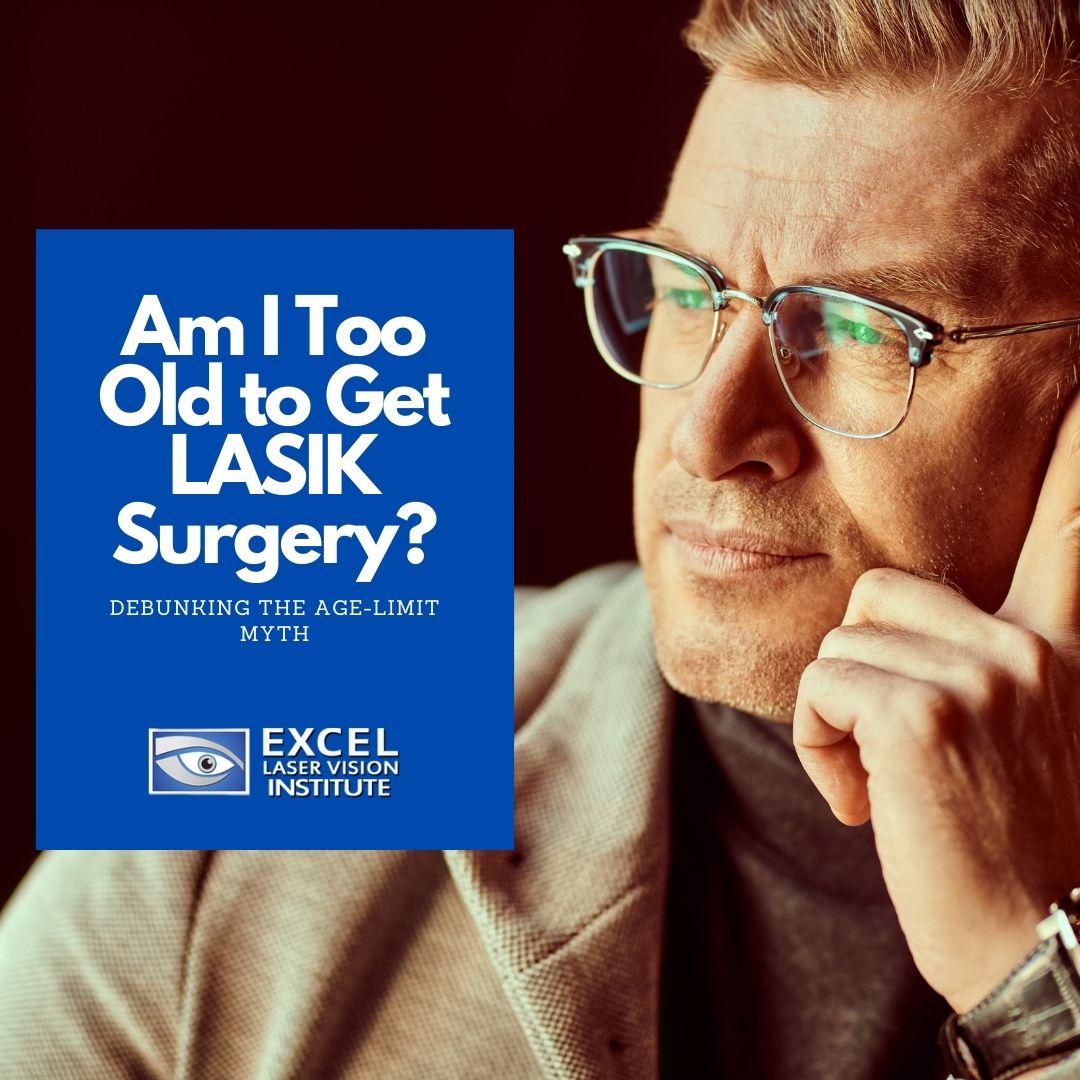
Am I Too Old to Get LASIK Surgery? Debunking the Age-Limit Myth
In order to qualify patients for laser eye surgery, there are certain guidelines that LASIK clinics in Los Angeles must follow. One of the guidelines states that you must be 18 years of age or older to receive the procedure. However, there is no age-limit to receive laser eye surgery.
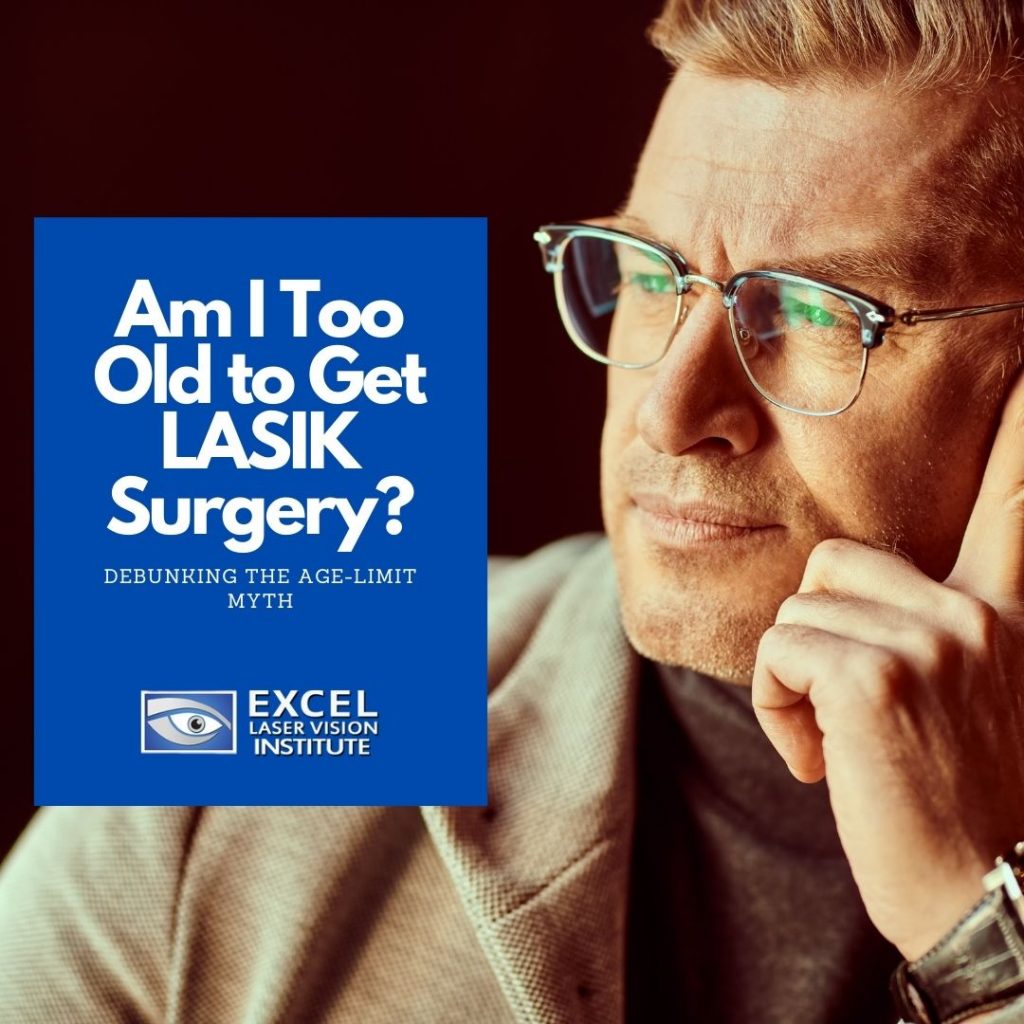
According to Doctor Moosa, one of the best LASIK surgeons in Los Angeles, individuals in their 40’s, 50’s, and 60’s may very well be good candidates for laser eye surgery, depending on other factors like eye health. Generally, people under 18 are not considered good candidates because their eyesight is not within a stable prescription yet. Many people, even in their twenties, are asked to wait until their prescriptions have not changed for up to a year before committing to the procedure. However, there is currently no age limit that restricts qualified patients.
LASIK eye surgery can treat myopia, hyperopia, and astigmatism. In patients over 40, LASIK surgeons see a trend of presbyopia, which is age-related farsightedness. This can affect the flexibility of the eye lens and cause blurry vision. Fortunately, presbyopia as a condition does not immediately disqualify patients for LASIK eye surgery. There are methods by which a LASIK surgeon can still correct refractive errors and reduce dependency on corrective lenses.
Once individuals reach age 55, they may start to develop cataracts which cause lens clouding and blurriness. LASIK cannot treat cataracts, but patients may undergo cataract surgery and then consider LASIK surgery after, in order to further treat farsightedness, nearsightedness, or astigmatism. Therefore, LASIK may still be an available option, even for patients who are at an older age and are experiencing certain age-related conditions.
Besides being 18 years or older, there is no age requirement for LASIK patients. When evaluating a patient for laser eye surgery, doctors will consider their prescription, eye health, and general health. As long as someone has no medical conditions that will interfere with the surgery, they may very well be eligible for LASIK. The only way to know for sure is to speak to a qualified LASIK surgeon. When you go in for a consultation, you may ask questions like “how much is LASIK surgery?” and “how long does the procedure last?”. This is the perfect time to get clear on your vision goals and learn how refractive surgery can help you get there. Many people are fortunate enough to receive 20/20 vision after LASIK and can live independently from their glasses or contacts.
While age limits may not exist for laser eye surgery, there are other factors that may disqualify a patient for LASIK eye surgery. Here are some of them:
- Thin corneas – Patients with thin corneas may be better suited to alternatives like PRK.
- Medical conditions – Patients with autoimmune disorders or diabetes may have to take medications that could interfere with LASIK healing. Consult a LASIK specialist to see if your medical condition disqualifies you as a candidate.
- Eye diseases – Patients with corneal diseases, severe dry eye syndrome, amblyopia, keratoconus, glaucoma, and cataracts may not be eligible for LASIK eye surgery. However, in the case of cataracts, patients may be able to receive treatment for their condition and then be eligible for LASIK after.
- Eye infections or injuries – Patients that have suffered trauma to the eye or are fighting off infection may not be eligible for LASIK. However, they may be redirected to come back to the clinic for an evaluation after their eyes have fully healed.
- Pregnancy or nursing – Patients that are pregnant or currently nursing are not considered eligible for LASIK because of the hormonal fluctuations in their body. They may be eligible to receive laser eye surgery once their hormones have rebalanced.
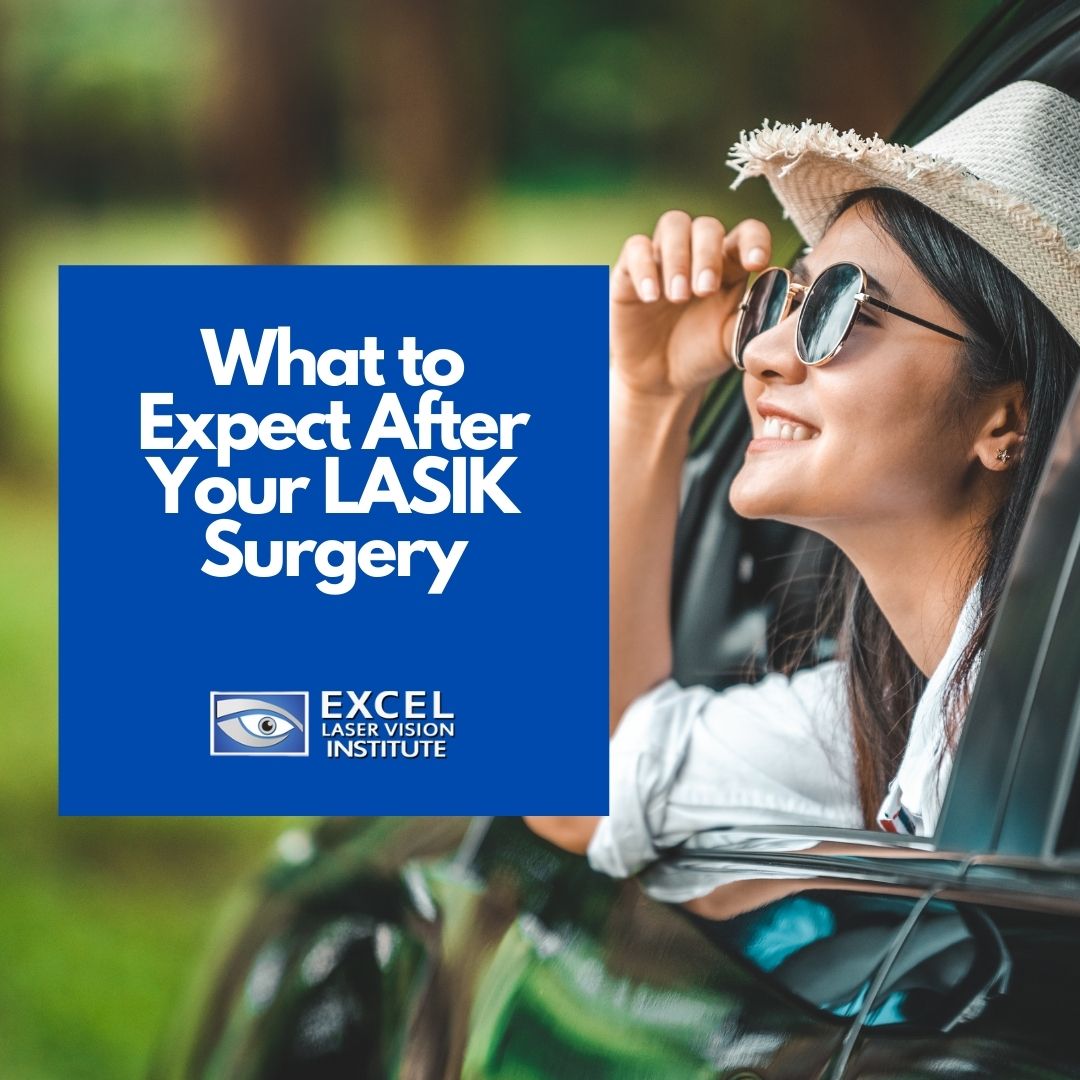
What to Expect After Your LASIK Surgery
When you visit a LASIK clinic in Los Angeles particularly Excel Laser Vision Institute, you will be attended with the utmost respect and care. This is one of the reasons why laser eye surgery has become such a popular vision-correcting alternative in recent years. Not only is it precise and accurate, but most patients describe feeling safe and comfortable throughout the whole process.
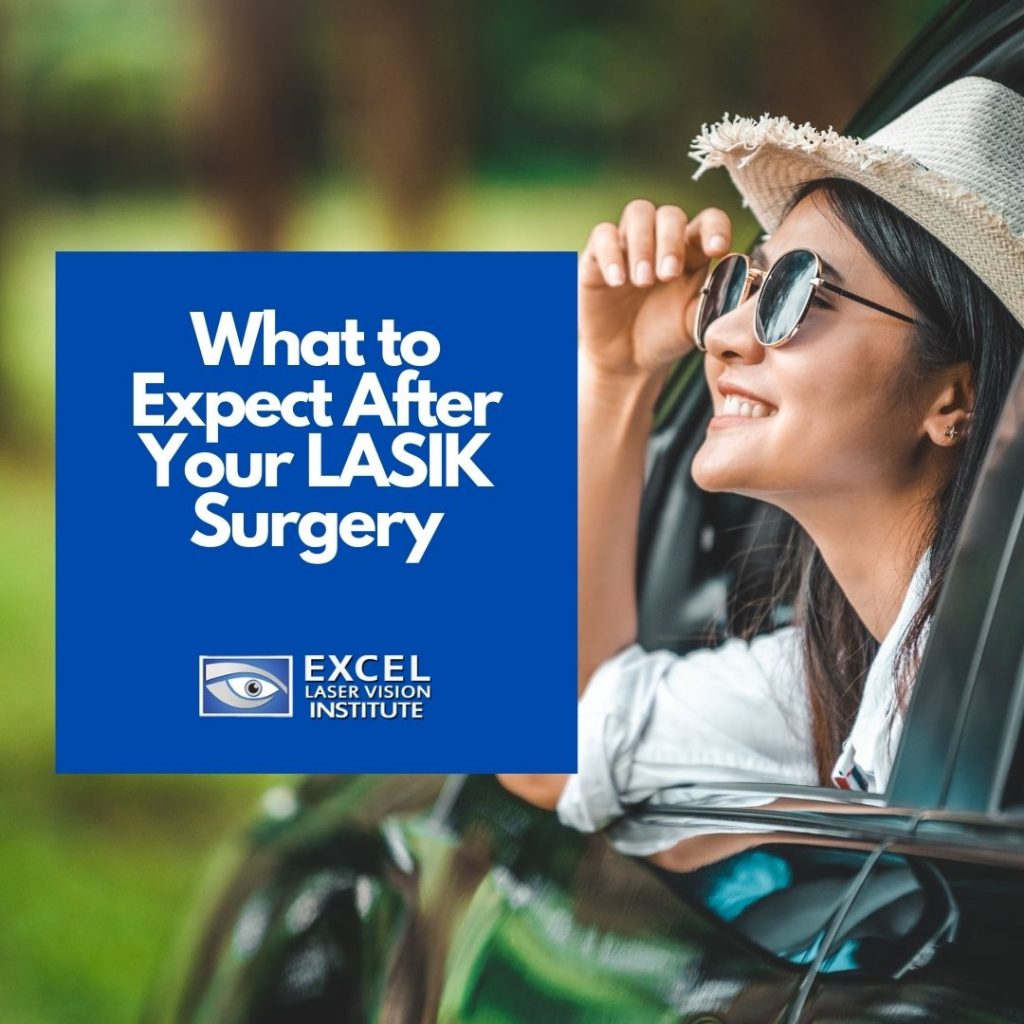
Your surgeon at a LASIK eye center will first conduct a thorough examination of your eye in order to determine if you are eligible for the procedure. Once you are cleared as a qualified LASIK patient, they will run through the surgery with you in order to help you prepare mentally and physically. Typically, surgeons will ask that you come into the surgery wearing comfortable clothes with no makeup on and a designated driver to get you home. They will describe the various instruments that will be used to correct your refractive error and answer any questions you have about the surgery.
If you don’t have much experience with laser eye surgery, then it is important to ask as many questions as you can. This will help ease your mind for the day of the surgery and allow you to relax fully during the procedure. As you may or may not know, LASIK is known for being quick and painless. Some patients are done in under fifteen minutes and get to experience immediate results! Depending on your vision goals and the extent of your refractive error, your surgery and recovery process may vary. However, this is what most patients at a LASIK clinic will experience after their surgery:
- Improved vision immediately after the surgery – Not 100% clear, but astonishing for some patients who have relied on contacts or glasses for so long. Patients have described it as opening your eyes underwater.
- Ability to drive after 24 hours – Patients are asked to bring a designated driver with them to the surgery. Once it is finished, they typically notice their vision clearing up in the next few hours. Most patients can return to their normal routine in the next day or so.
- Protective shields – Many LASIK doctors recommend protective shields to their patients after the surgery to protect their eyes from injury and light sensitivity. This will be assigned for a certain period of time, depending on your eye needs.
- Prescription eye drops – In order to prevent infection and minimize inflammation, LASIK doctors will often prescribe eye drops to their patients. They may also recommend non-prescription drops to lubricate the eyes if any dry eye symptoms are noticed.
- Post-surgery rest – Patients typically describe LASIK as painless because the procedure is completed with the help of numbing drops and medications. However, once the anesthesia wears off, there may be some initial discomfort during recovery. In addition to eye drops and protective shields, LASIK doctors recommend that patients close their eyes and rest for the first four hours after their surgery.
- Post-surgery check-ups – LASIK patients can expect to have a post-op check-up on the day after their surgery. This is to ensure that the healing process is running smoothly and the surgical treatment is satisfactory. Patients will likely have a second check-up a week later. Make sure to tell your doctor about any symptoms that you may have noticed and ask any questions about the recovery process.
LASIK Eye Surgery Near Me
If you are looking for a qualified surgeon to correct your vision errors, then look no further than Dr. Moosa at the Excel Laser Vision Institute. As a Harvard-trained surgeon with thousands of surgeries under his belt, Dr. Moosa has the experience and the confidence to help you achieve your vision goals. Excel Laser Vision Institute has offices in Los Angeles and Orange County.

What Your Eyes Reveal About Your Health: LASIK Experts in Orange County Explore Possible Signs of Alzheimer’s
Can our eyes predict our overall health? This is the question that many ophthalmologists are asking now that new studies have shown a perceptible link between brain health and retinal changes. Eye examinations have long been important for detecting ocular diseases like glaucoma and macular degeneration but according to Doctor Moosa, one of the top ten LASIK experts in Orange County, our eyes may be able to tell us more about our overall health.
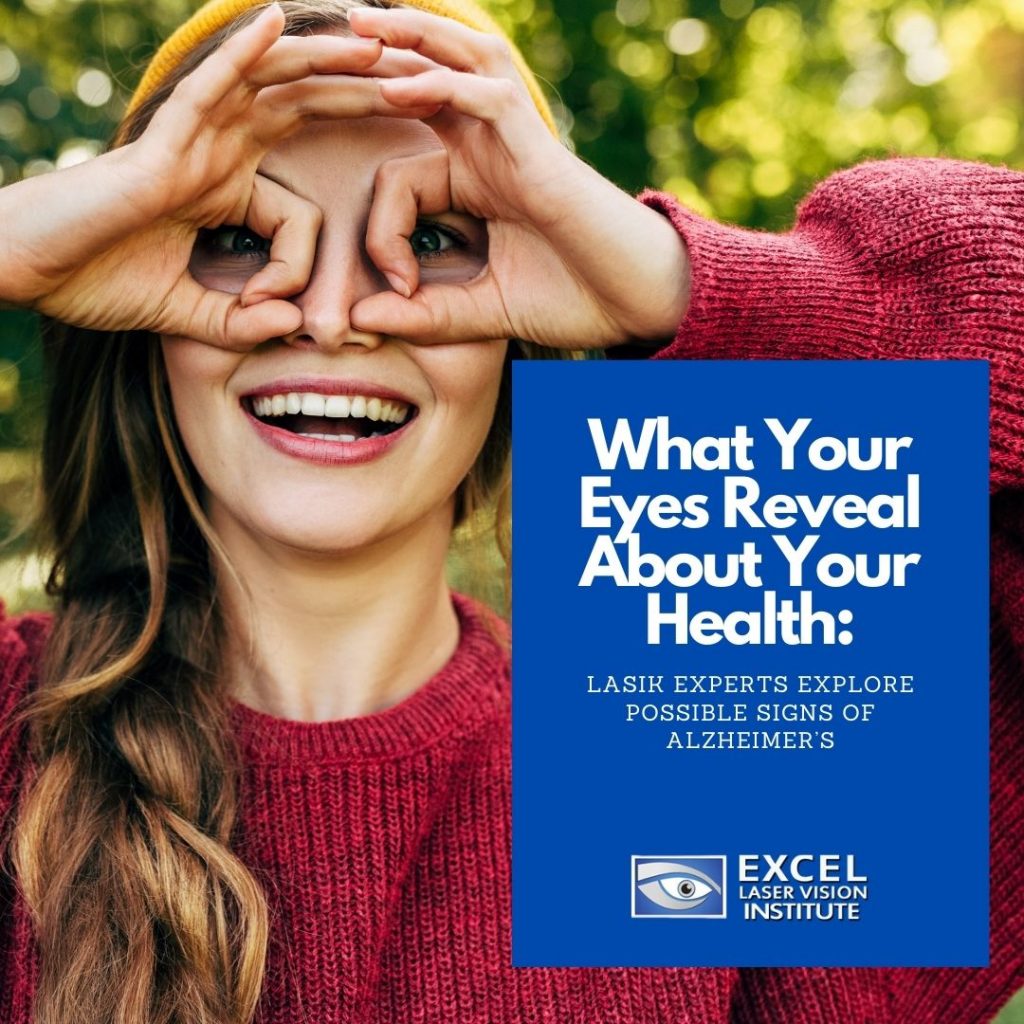
For decades, medical professionals have been using fundus exams, which examine the back of your eye, to discover early signs of diabetes, heart disease, and cancerous tumors. These examinations focus on the nerve cells and blood vessels in the retina in order to gather greater information about bodily health. Everything in our body is connected to or reliant on another part, which is why it makes sense that our eye health would affect or reflect other aspects of our physical functioning.
Laser eye surgery clinics in Orange County specifically Excel Laser Vision Institute have been following a recent study in the U.K. which hypothesizes a link between retinal changes and Alzheimer’s disease. For the study, researchers conducted retinal scans on one hundred and twenty subjects, all considered to be elderly. In twenty-five percent of the subjects with Alzheimer’s disease, researchers found yellow deposits of calcium and fat in their eye examinations. Only four percent of subjects without Alzheimer’s displayed this same symptom.
Calcium and fat deposits behind the eye, otherwise known as hard drusen, are signs of oxidative stress. This means that there is an imbalance between antioxidant defenses and free radicals in the body. While this does not pose a threat to vision, it does suggest a risk of developing Alzheimer’s disease. If you speak to a LASIK surgeon about oxidative stress, you will learn that this condition often implicates other health concerns like high blood pressure, heart disease, diabetes, atherosclerosis, inflammatory issues, cancer, and Parkinson’s disease.
While following this U.K. study, LASIK clinics in Orange County specifically Excel Laser Vision Institute learned that the patients with Alzheimer’s also tended to reveal thicker blood vessels in their examinations, which suggests that they had poor circulation and blood flow. This is a known risk factor of Alzheimer’s and plays a large role in memory loss. This study has shown that there may be more ways to detect early signs of Alzheimer’s and perhaps even prevent it from developing in certain individuals. Currently, there is no one, conclusive test to diagnose Alzheimer’s. However, this study provides a greater range of knowledge and tools to help fight against it.
Since our eyes do so much for our day-to-day and reveal much about our health, it is important to have yearly eye exams in order to monitor their progress. Search “LASIK surgeons near me” to find a clinic where you can schedule a full examination and consultation about your vision needs. LASIK eye surgery is known to treat refractive errors such as astigmatism, nearsightedness, and farsightedness. Many patients are even able to achieve 20/20 vision or better. Say goodbye to glasses and contacts and hello to clear vision!
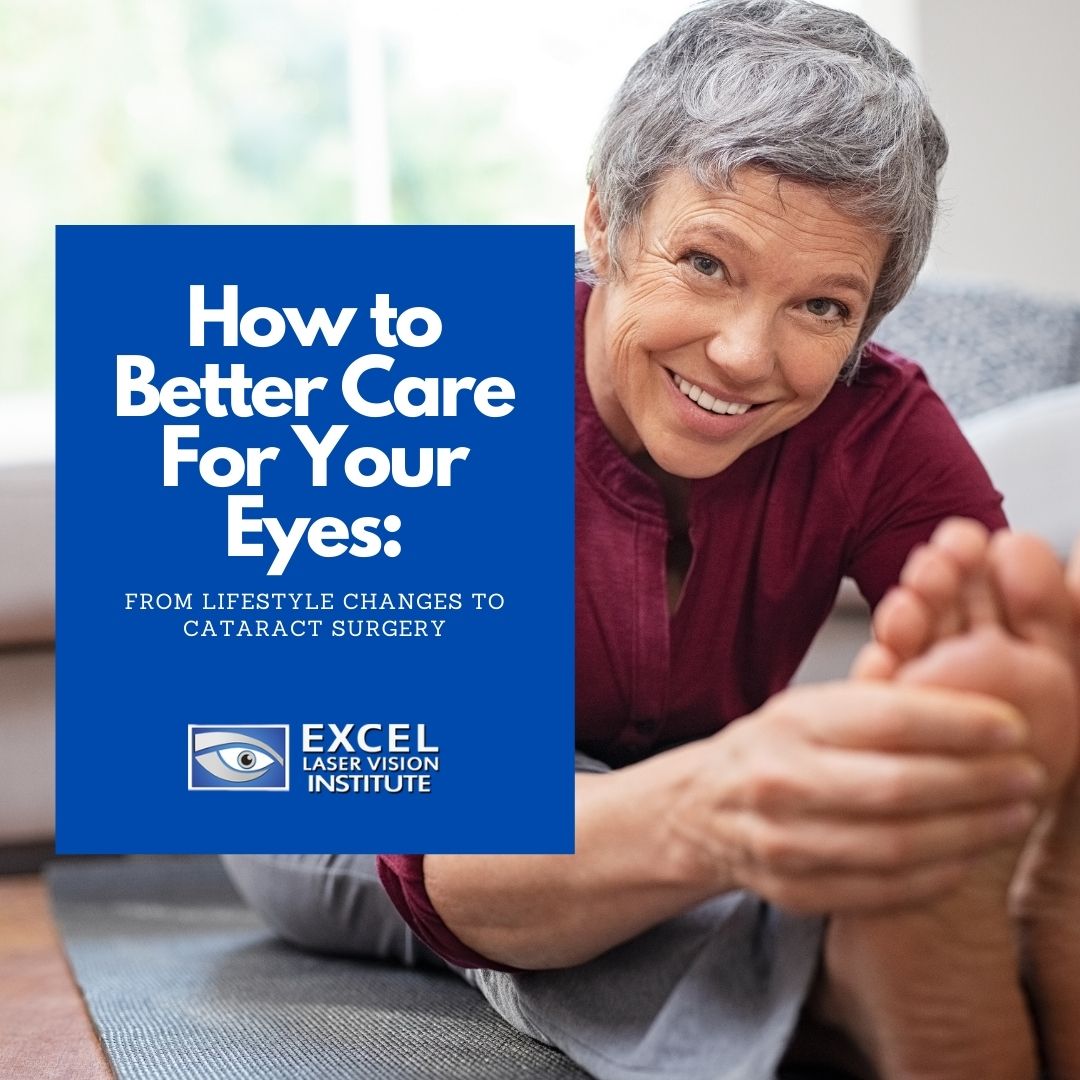
How to Better Care For Your Eyes: From Lifestyle Changes to Cataract Surgery
It’s easy to take our eyes for granted. Every day of our lives we rely on our vision, from the most baseline activities to our passions and work. Very often, people forget how important this is until some part of their eyesight is compromised. Fortunately, technology can help us out when this happens. Procedures like LASIK and cataract surgery in Los Angeles allow people to regain clarity of sight and move forward with their lives.
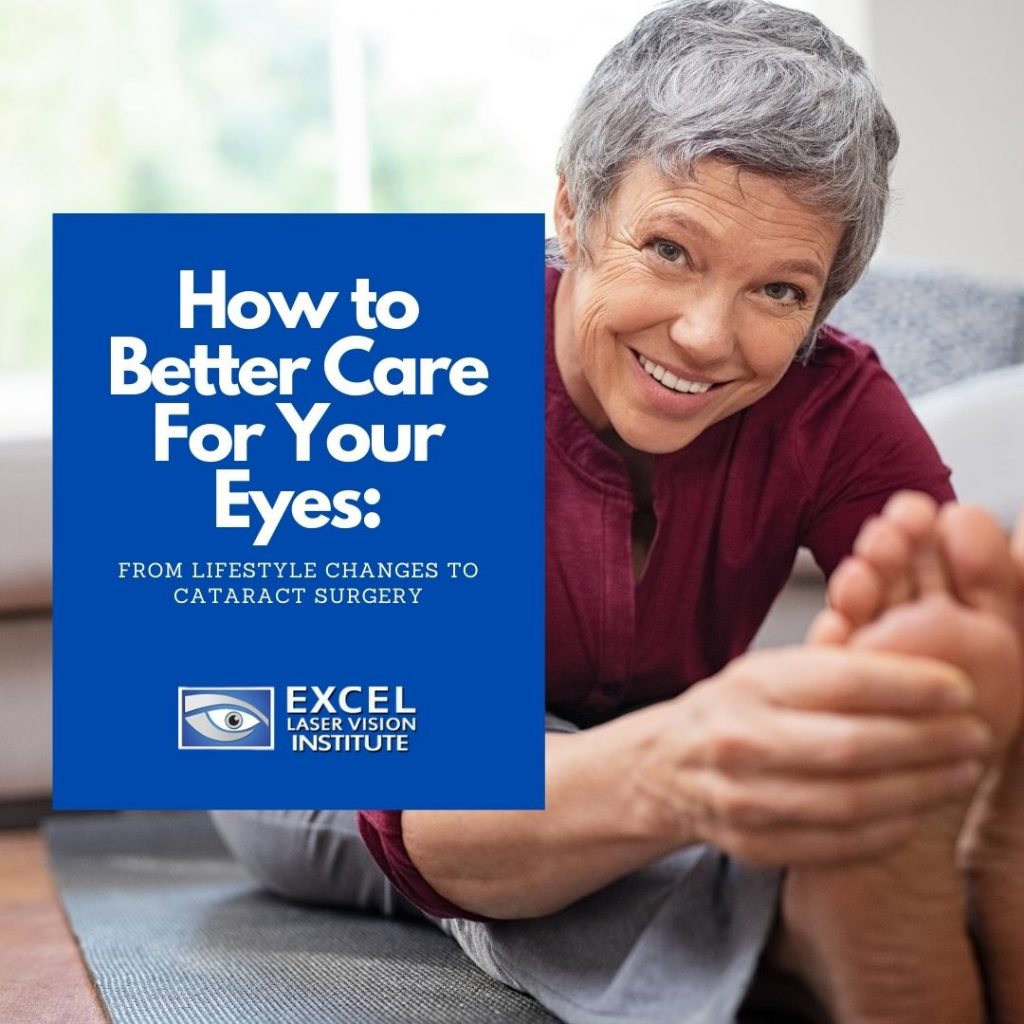
Since our eyes contribute so much to our quality of life, we have to maintain ocular health in order to maintain ocular function. This is true for almost anyone, regardless of measured visual acuity. Those looking into laser vision correction in Los Angeles need healthy eyes just as much as people who have never worn a corrective lens in their life. Here are some of the ways that we can take better care of our eyes:
Eating a well-balanced diet
Diet affects nearly every aspect of our health, including our eyes. There are certain foods that will promote healthy eyes such as green leafy vegetables and yellow vegetables. Fruits that are high in vitamin C can contribute to healthy blood vessels and combat cataracts. Omega 3 fatty acids have been shown to improve eye pressure and reduce the risk of glaucoma. These can be found in halibut, salmon, and tuna.
Getting enough exercise
According to corrective eye surgery experts, exercise can play a large role in eye health as well. Many people don’t realize that conditions such as high blood pressure, high cholesterol, and diabetes can often lead to chronic eye issues that damage vision. In order to lower your risk of developing these problems, it is imperative that you follow regular health-conscious practices according to your personal needs.
Protecting your eyes from the sun
Many patients who receive cataract surgery in Los Angeles have been told that UVA and UVB protection is the key to preventing cataract development. While spending time outside is great for most people’s health, it is important to limit sun exposure to the eyes. Other eye conditions that can develop as a result of harmful sun rays are corneal growths, keratitis, and age-related macular degeneration.
Filtering blue light
In this digital age that we live in, it’s hard to get away from screens. We are constantly on our phones, tablets, and computers. Then, when we get home, we watch TV. Unfortunately, these screens emit a high energy blue light that can damage eyes over time. The best way to offset this exposure is to take supplements like zeaxanthin and lutein. You can also take frequent breaks to look at something off the screen and blink more often.
Practicing good ocular hygiene
There are certain things that we do without thinking and one of those is touching our eyes. Whether we feel an itch or we are adjusting our contacts, it’s easy to reach up and rub around the area without thinking. However, our eyes are very sensitive and require the utmost care at all times. In order to protect your eyes from any irritants, it is important to always wash your hands before making contact with them and never use rough motions.
Getting laser eye surgery
It’s important to understand our limitations when it comes to eyesight. If you are someone who has worn contacts and glasses all your life or most of your life, then you know that having a refractive error can affect your day to day life. Fortunately, advancements in technology and ocular knowledge have allowed us access to procedures like LASIK. This vision correction alternative is a long-term solution that often eliminates the need for contacts or glasses entirely. For people with contact lens intolerance or who often suffer from fogged up glasses, this is life-changing. Contact a LASIK clinic near you to schedule a consultation with a surgeon. You can ask them questions like, “How much does LASIK cost?” and “How long does LASIK last?” They will walk you through every aspect of the procedure and determine whether or not you qualify for this form of vision correction.
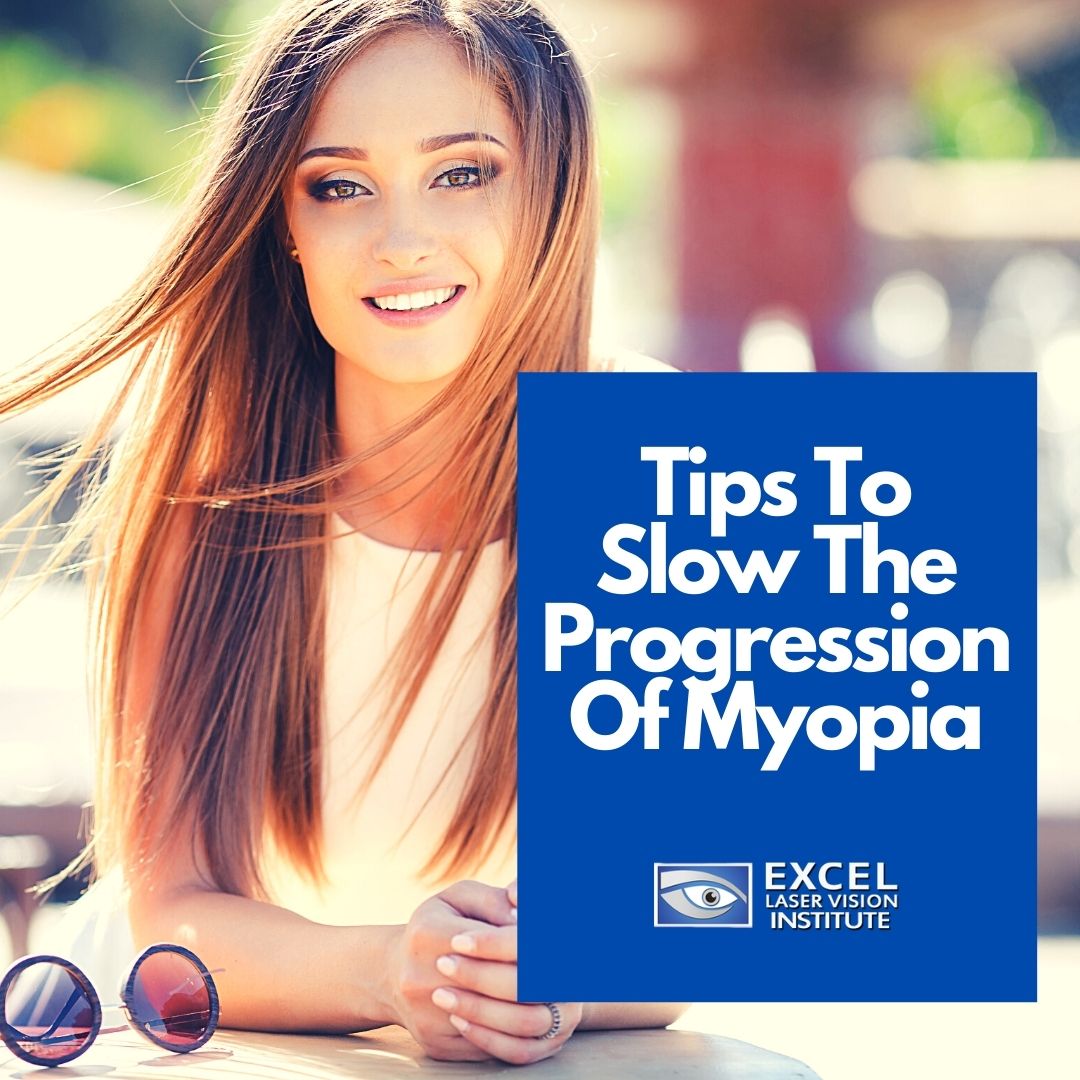
Tips To Slow The Progression Of Myopia
When you look at the number of people with vision problems on a global scale, you’ll see that myopia (otherwise known as nearsightedness or short sightedness) is one of the most common refractive errors. LASIK clinics have seen this trend increase over the years and recent studies have predicted that the percentage of people affected with myopia will nearly double over the next thirty years.
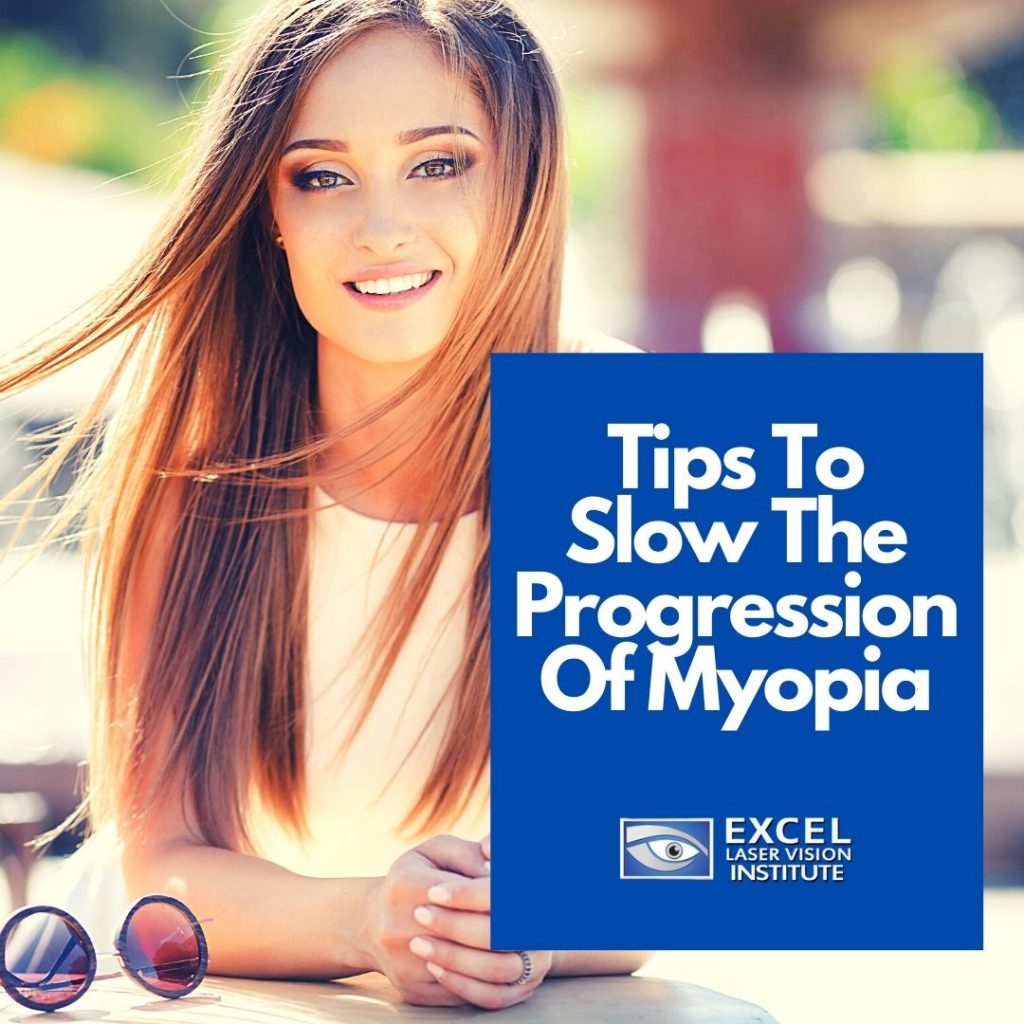
According to eye specialists, myopia happens when your cornea is too curved or your eyeball is too long. This distortion makes light focus incorrectly. Instead of falling directly on the retina, it focuses in front of it, which makes far away objects appear blurry. This is the complete opposite of hyperopia, in which far objects appear clear and closer objects are blurry. Many people seek LASIK eye surgery to improve their visual acuity as a cost efficient alternative to glasses and contacts. LASIK is known to treat myopia, hyperopia, and astigmatism.
Myopia usually starts developing for people in elementary school and then halts not long after they reach puberty. The condition, itself, is irreversible. However, treatments can be aimed at stopping its progression. The main goal is to achieve eye health at whatever level possible. Doctors are concerned about the recent increase in myopia because more severe cases are often linked to degenerative eye diseases. The World Health Organization cites myopia as the largest risk factor (other than age) for myopic macular degeneration, cataracts, glaucoma, and retinal detachments.
LASIK surgeons hypothesize that the integration of technology in daily life has contributed to the rise in myopia and the greater willingness for people to look into laser eye surgery cost and benefits. People around the globe, especially those who have office jobs, are spending over 8 hours a day staring at a screen. Even children are spending up to 5 hours a day on various handheld devices. It’s hard for our eyes to relax when they are constantly fixated on a TV, phone, computer, or tablet.
Fortunately, the advancement of technology over the last few decades has also allowed for the invention of more precise vision correcting lasers and methods of refractive surgery. If you look up “LASIK surgery near me” on a search engine, you will see that the availability of this procedure is growing exponentially. Not only can more people be qualified for LASIK, but it is also more affordable than ever.
Vision correction surgery is a convenient alternative to wearing prescription glasses or contacts and more people are starting to see this as a viable option. If you believe that laser eye surgery may be right for you, schedule a consultation with a reputable LASIK clinic in Los Angeles like the Excel Laser Vision Institute. Until then,
Here are some actionable steps that some individuals can take to slow the progression of myopia:
20-20-20 Vision Break
When staring at a screen for a long period of time, take a 20-20-20 vision break every so often. This means a 20 second break every 20 minutes by looking at something 20 feet away.
UV Protection
Spending time outdoors is a great way to get off digital screens. However, it is important to always wear UV protection. Studies have shown that children who are exposed to about 2 hours of natural light a day can decrease their risk of myopia.
Antioxidants
If you want to treat your eyes well, eat lots of foods that are rich in antioxidants. This includes fish, nuts, seeds, citrus, and green leafy vegetables. You can also take vitamin supplements to add to a balanced diet.
Eye Exams
The only way to know if you have myopia or if it’s getting worse is to have your eyes checked by a professional. Make sure to schedule regular eye exams in order to monitor your eye health. This is especially important if you currently have a prescription to correct myopia.
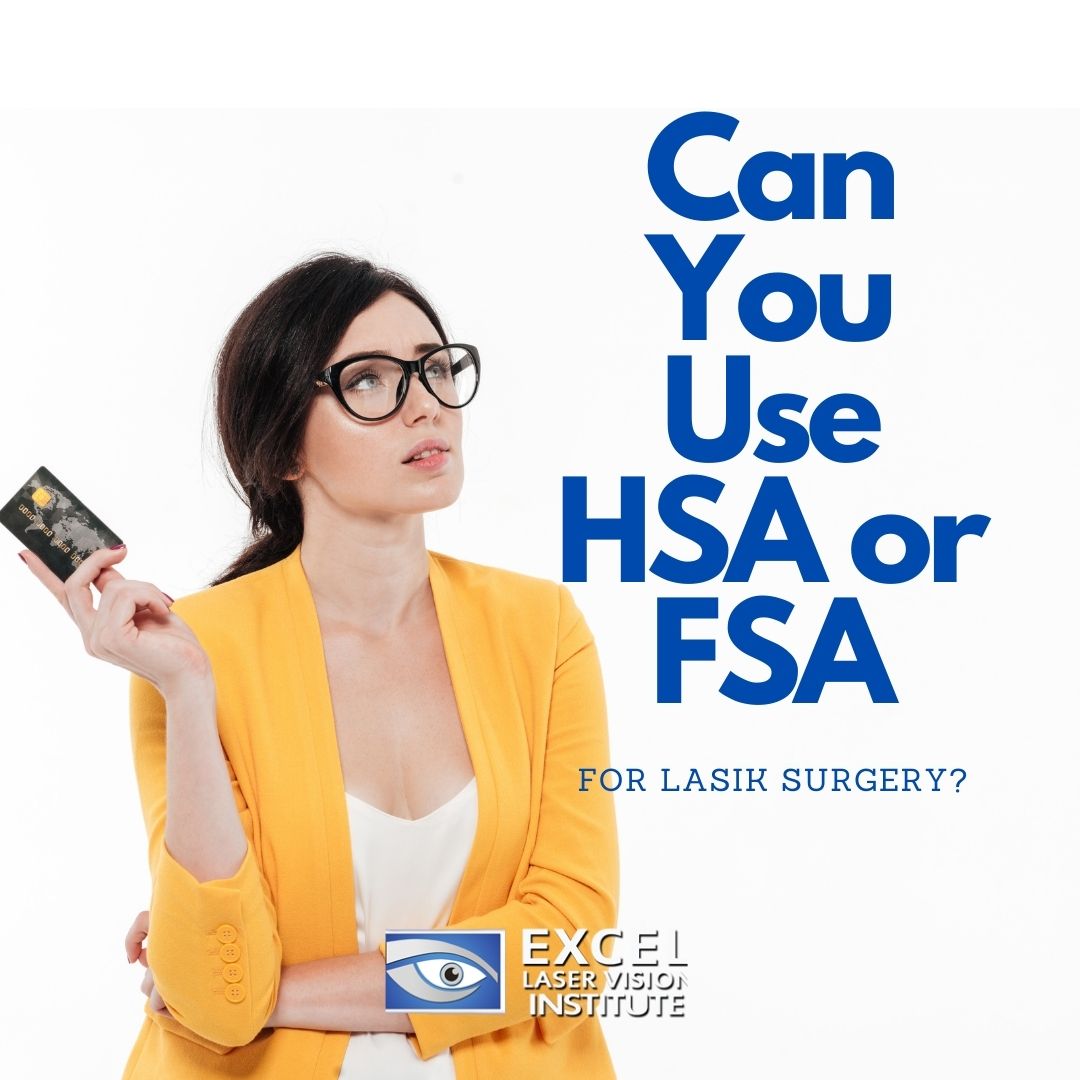
Can You Use HSA or FSA for LASIK Surgery?
Many people will immediately assume that the price for LASIK surgery in Los Angeles is out of their budget. The reason for this is that it is such a highly regarded vision correction procedure that can target various levels of astigmatism, farsightedness, and nearsightedness. Since it has such a high patient satisfaction rate, people tend to believe that they will not be able to afford it. However, there are actually quite a few financial options available to pay for laser eye surgery.
When you are investigating LASIK eye surgery cost in Los Angeles, be sure to check with your health insurance company. Certain individuals may be able to have parts of the procedure covered by their insurance plan. However, if you (like many others) do not qualify for insurance coverage, then you can also check into payment options like FSA and HSA.
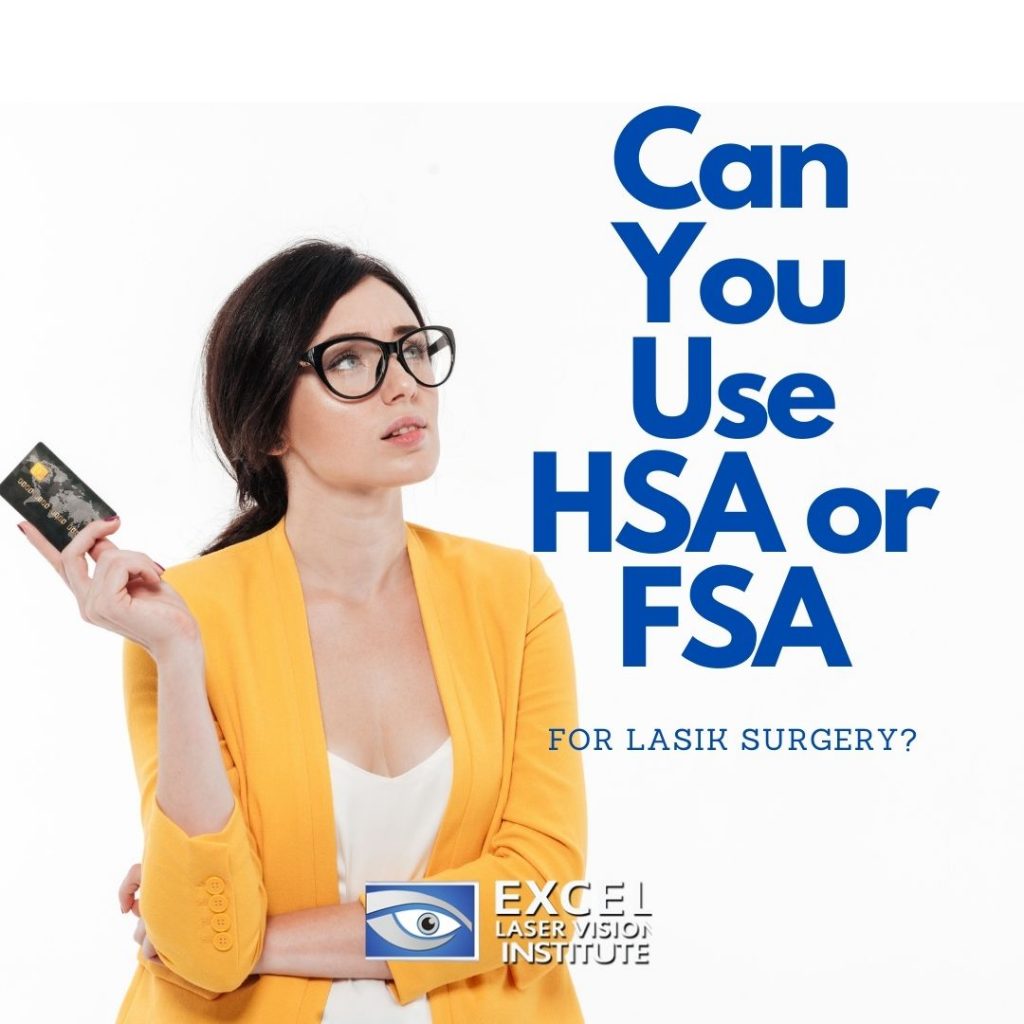
Health Savings Account (HSA)
Basically, HSA is a savings account that is exempt from taxes when it is combined with a high-deductible health plan. Many people use a health savings account to pay for large medical expenses because it will not be taxed. In order to utilize this account with your health insurance plan, you must ensure that they are compatible. According to Doctor Moosa, one of the leading LASIK experts in Los Angeles, the IRS will often change the requirements of high-deductible plans. So, you should always do your research to make sure that you can use an HSA to pay for your laser eye surgery.
Flexible Savings Account (FSA)
When people have health insurance through their employer, they can often use flexible savings account for copayments, medications, deductibles, and other health care expenses. These accounts can help reduce overall taxes as well. While employers are not required to contribute to FSAs, some may do so anyway. Check with your HR department to learn more about your company’s policy. Generally, there are set guidelines for what a flexible spending account can be used for.
How Much is Laser Eye Surgery
Before looking at your financing options, you should first understand the total cost of your LASIK surgery. Most clinics will offer a quote of around $2,000 an eye, which will equal about $4,000 for both eyes. However, these prices may vary according to the experience of the surgeon, the technology available, and the complexity of the procedure needed. When estimating the total price, the best laser eye surgery clinic in Los Angeles such as Excel laser Vision Institute will account for the presurgical testing and consultation as well as the postsurgical follow-ups. Transparency is key when it comes to understanding these expenses.
Health Insurance
LASIK is considered an elective procedure, which is why most health and vision insurance policies do not cover it. However, there are some professions in which LASIK may be considered a necessity. Some of these include: military service, law enforcement, and professional sports athletes. Alternatively, some insurance policies may be disputed if LASIK will improve overall eye health due to allergies, dry eye, or contact lens intolerance. The only way to know if your insurance will cover any part of laser eye surgery is to ask.
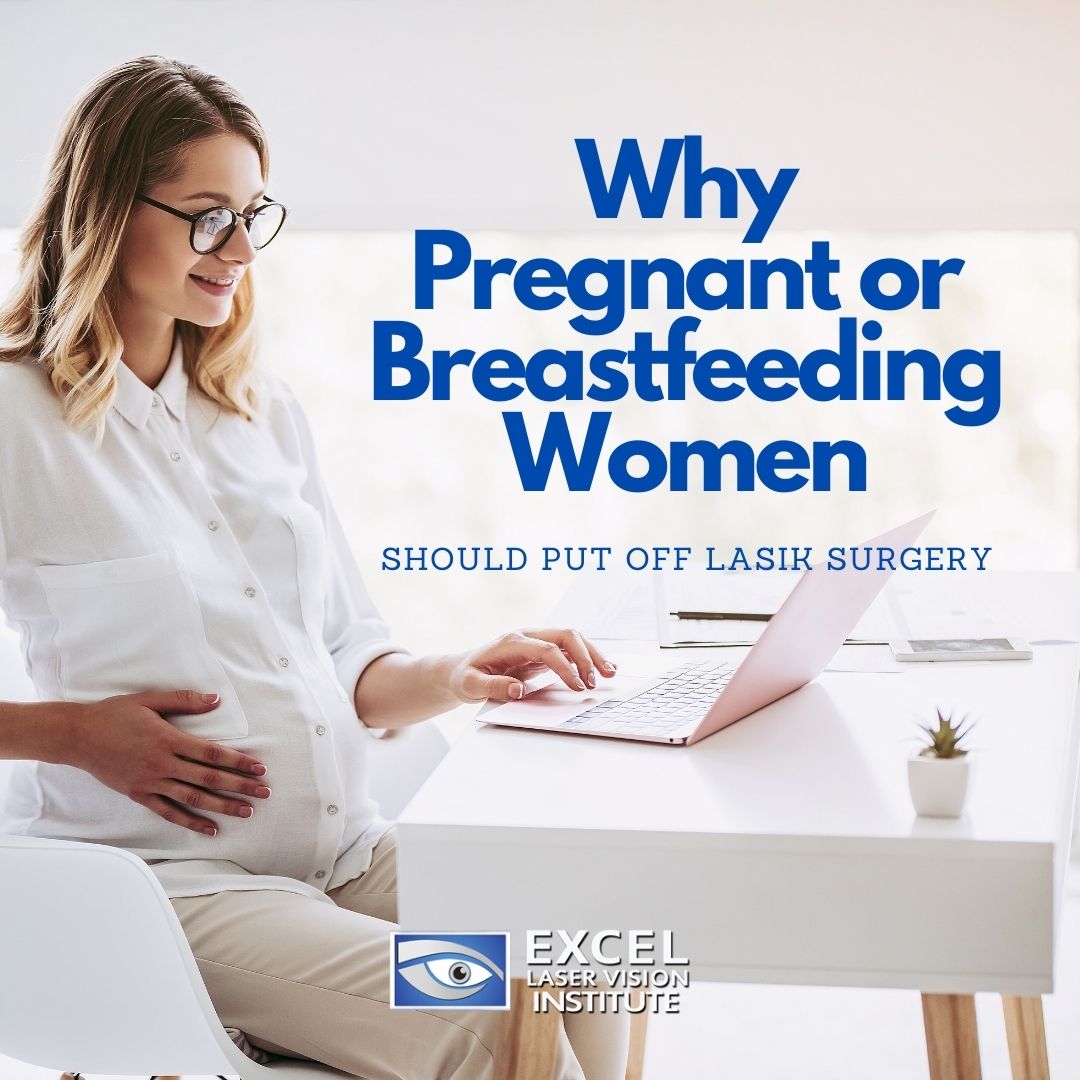
Why Women Who are Pregnant or Breastfeeding Should Put Off LASIK Surgery
When visiting a LASIK clinic in Los Angeles as a potential LASIK patient, you will receive an in-depth eye exam and health evaluation. Eye care professionals such as those of Excel Laser Vision Institute will look for any signs that may disqualify you for the procedure in terms of your eye condition, health history, and current health status. You may be disqualified from LASIK and pointed to an alternative laser eye surgery, or you may be told to wait until your health conditions align with the ideal candidate. One reason that a doctor may tell you to come back to be reevaluated is if you are currently pregnant or breastfeeding.

Women who are breastfeeding or pregnant are generally told to put off their LASIK eye surgery because this could affect the results of their procedure or even jeopardize the safety of the baby. Here are some of the main reasons why a LASIK professional will tell a woman who is pregnant or breastfeeding to delay their laser eye surgery.
Hormonal Changes
Women undergo natural hormonal shifts when breastfeeding and pregnant, which can ultimately affect their visual acuity. According to recent studies, these hormonal fluctuations can cause the eye lens to swell which may alter a patient’s prescription. LASIK is known for treating farsightedness, nearsightedness, and astigmatism but these hormonal shifts could actually make it more difficult to achieve precise vision correction. Experts at Excel Laser Vision Institute, a LASIK eye center in Los Angeles, recommend that women undergo LASIK before pregnancy or 2-6 months after breastfeeding. This will ensure that hormones are relatively balanced and a patient’s true prescription can be treated.
Medication Use
LASIK surgeons typically utilize certain medications on LASIK patients that may not be safe for pregnant or breastfeeding women to take. For example, LASIK patients are often given a mild sedative in order to relax them prior to the surgery. When taken by a pregnant woman, this could potentially cause harm to the baby. Laser eye surgery patients will also be given eye drops that help numb and dilate the eye during the surgery and antibiotic eye drops to prevent infection as well as steroidal eye drops for inflammation. These drops have the potential to enter a woman’s bloodstream and pose risks to a pregnancy in the third trimester. Finally, women who are pregnant or breastfeeding will not be able to take any painkillers which could potentially make their procedure more uncomfortable and inconvenient.
Radiation Exposure
As with many medical procedures, LASIK surgery exposes patients to some levels of radiation from the laser technology. This happens when the laser is creating tiny corneal incisions and reshaping the tissues in the cornea. While this is very minimal and unharmful to the ideal candidate, this radiation may be dangerous for women who are pregnant or breastfeeding. In order to avoid any of these risks, doctors will always recommend that women put off any elective procedures until after their period of breastfeeding is over.
LASIK Eye Surgery Near Me
While women who are currently pregnant or breastfeeding may not be ideal candidates for LASIK, they can often receive the procedure later on. LASIK experts in Los Angeles like Doctor Moosa recommend that women wait a minimum of 2 months after breastfeeding to visit a LASIK clinic and have a thorough evaluation. LASIK specialists will be able to identify any potential risks and steer patients in the right direction to achieve their vision goals.
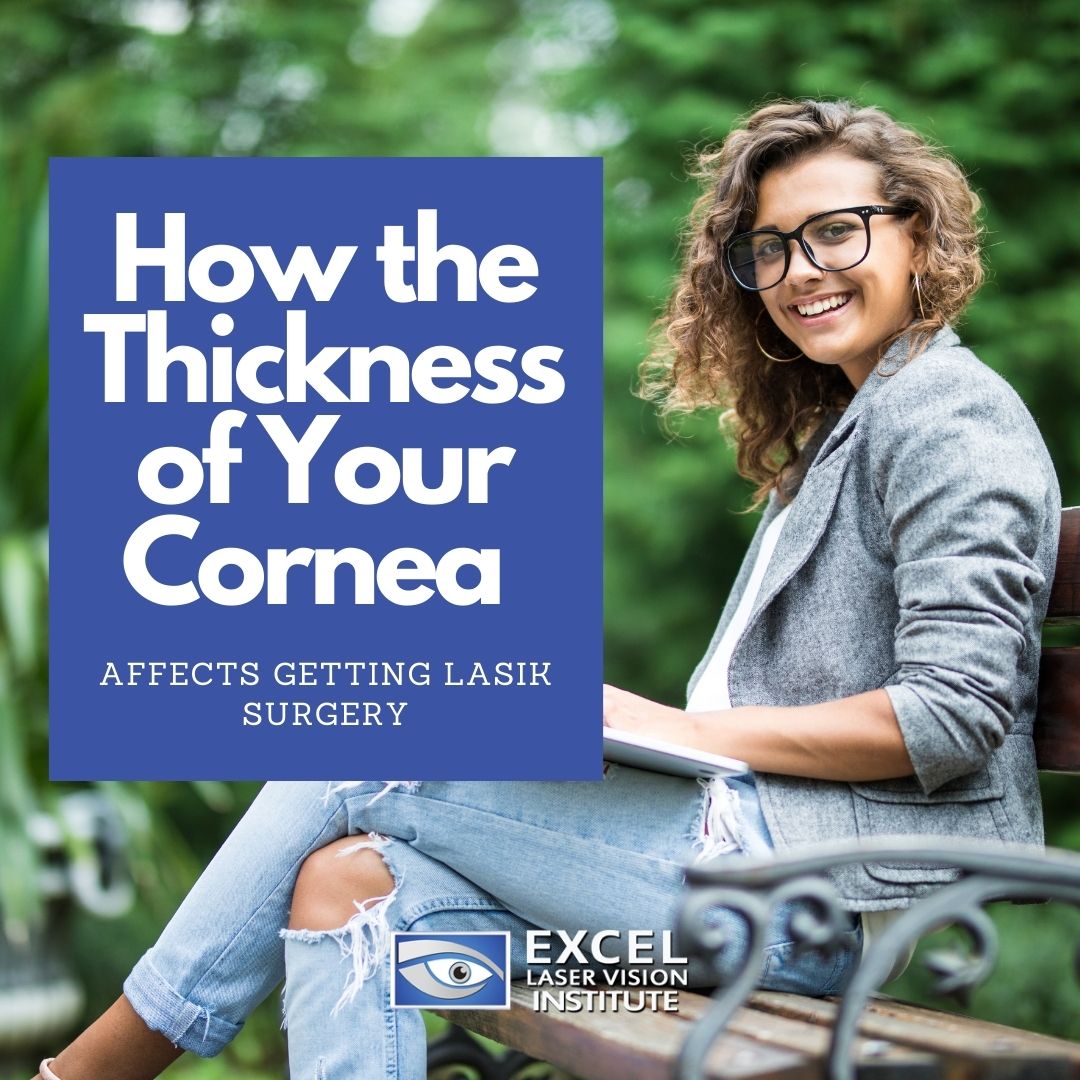
How the Thickness of Your Cornea Affects Getting LASIK
When glasses or contacts become too troublesome and inconvenient, many people turn to laser eye surgery. LASIK experts in Los Angeles like Doctor Moosa say that LASIK is known for treating varying levels of farsightedness, nearsightedness, and astigmatism. The reason that this procedure has become so popular is that it is a long-term solution that actually corrects corneal aberrations, rather than just compensating for them. LASIK patients can achieve up to 20/20 vision or, in some cases, even better!
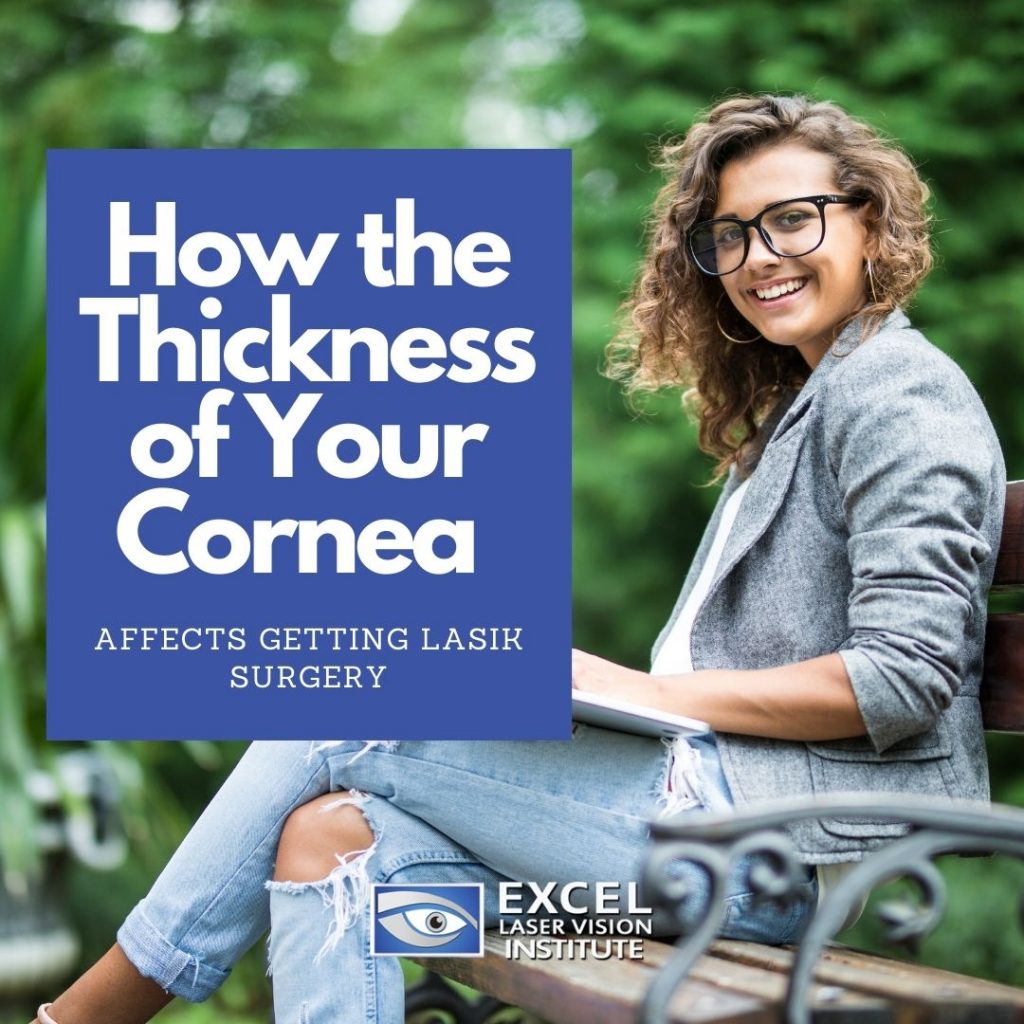
The best LASIK surgeons in Los Angeles are selective when it comes to their patients. Not everyone can be eligible for LASIK because there are certain factors that can affect the accuracy of the results and the safety of the patient. Corneal thickness is one of the eye conditions that LASIK specialists will check for before qualifying a patient for LASIK. This is a particularly important requirement for a few reasons.
Imperfect prescriptions are caused by irregularities in the cornea which can be perceived as nearsightedness, astigmatism, or farsightedness. Light is directed behind or in front of the retina, instead of on it, which can affect the clarity of the image. LASIK surgeons in Los Angeles correct this issue by removing excess tissue and reshaping the cornea to better reflect light. LASIK requires the creation of a tiny flap in order to access the stromal layers of the cornea.
When visiting a LASIK clinic in Los Angeles, patients will receive a comprehensive eye exam in order to determine if they are an ideal candidate for the procedure. Since the LASIK method requires a corneal flap to be made, patients must have a cornea that is within a certain range of thickness. When a patient’s cornea is too thin or too weak, this increases their chances of experiencing complications or jeopardizing their healing process. Here are some of the qualifications and facts that LASIK specialists consider:
- Patients must have a minimum of 250 microns of corneal thickness after their surgery.
- LASIK removes about 160 microns of tissue to create the corneal flap.
- LASIK removes about 12-14 microns per diopter of vision for correction.
- Corneal thickness can be measured with a corneal pachymetry test.
After measuring the thickness of your cornea, LASIK specialists will need to do some mathematical reasoning in order to determine if you are a safe candidate for the procedure. If a doctor determines that you do not qualify for LASIK, you may qualify for PRK instead. This laser eye surgery alternative uses a slightly different method to correct vision in which a corneal flap is not needed. This helps conserve corneal tissue.
Whether you qualify for LASIK or not, it is a good idea to visit a clinic to have the evaluation and determine the best way to reach your vision goals. If you’re wondering how much LASIK surgery is, then you will be given an estimate based on the needs of your current visual acuity. Fortunately, LASIK is more affordable than ever with available financing options. When you calculate the total cost of LASIK and compare that to the lifetime use of glasses or contacts, you will see that this procedure is a worthwhile investment. Contact the Excel Laser Vision Institute to learn whether you qualify for LASIK eye surgery and get started on the journey to clear, independent vision.
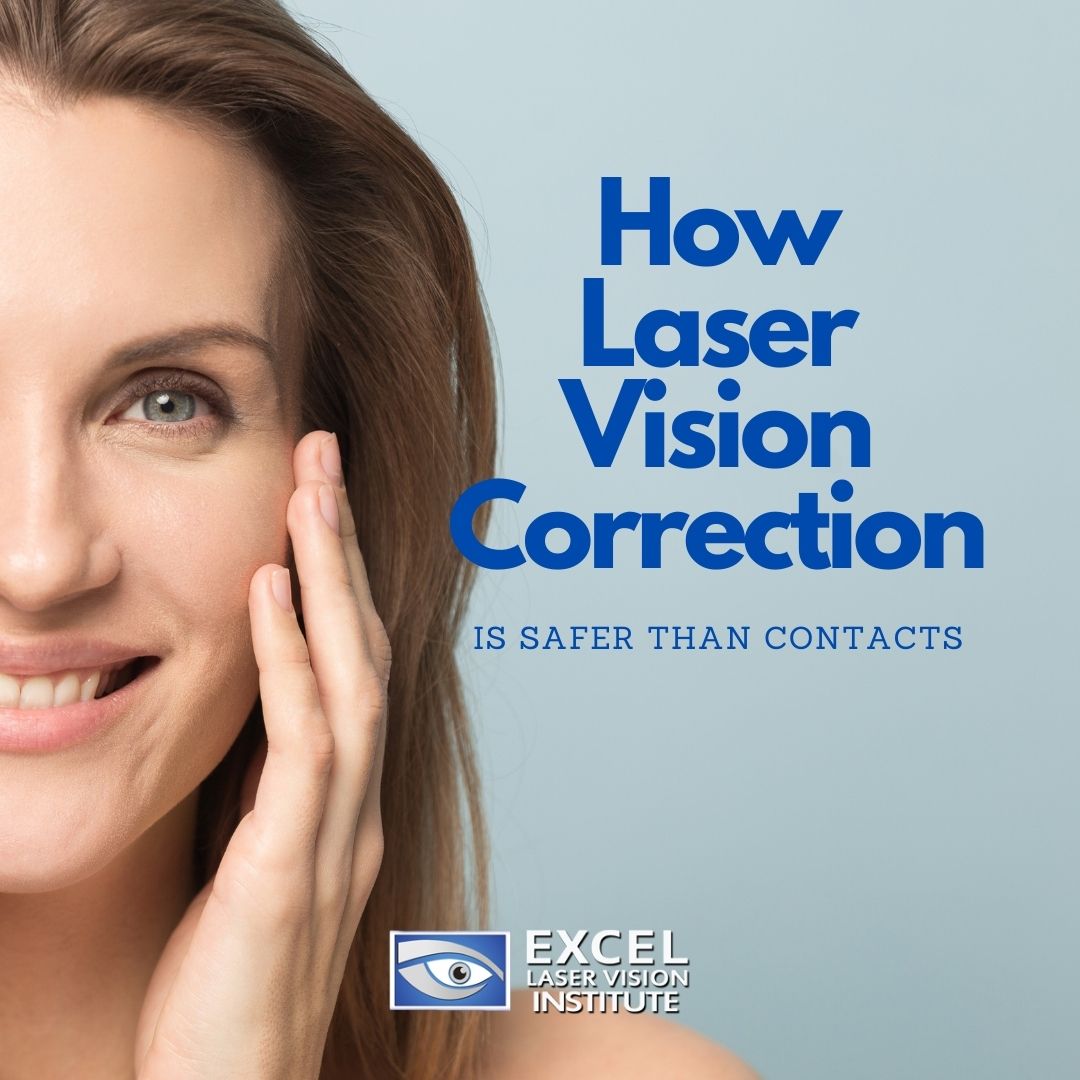
How Laser Vision Correction is Safer Than Contacts
For many people, wearing glasses is an inconvenience, but they require some form of vision correction to be able to go about their daily lives. This is when many people will switch to contact lenses. However, according to LASIK experts in Orange County like Doctor Moosa, the safety risks that come with regular contact use are actually greater than undergoing laser eye surgery to correct vision long-term.
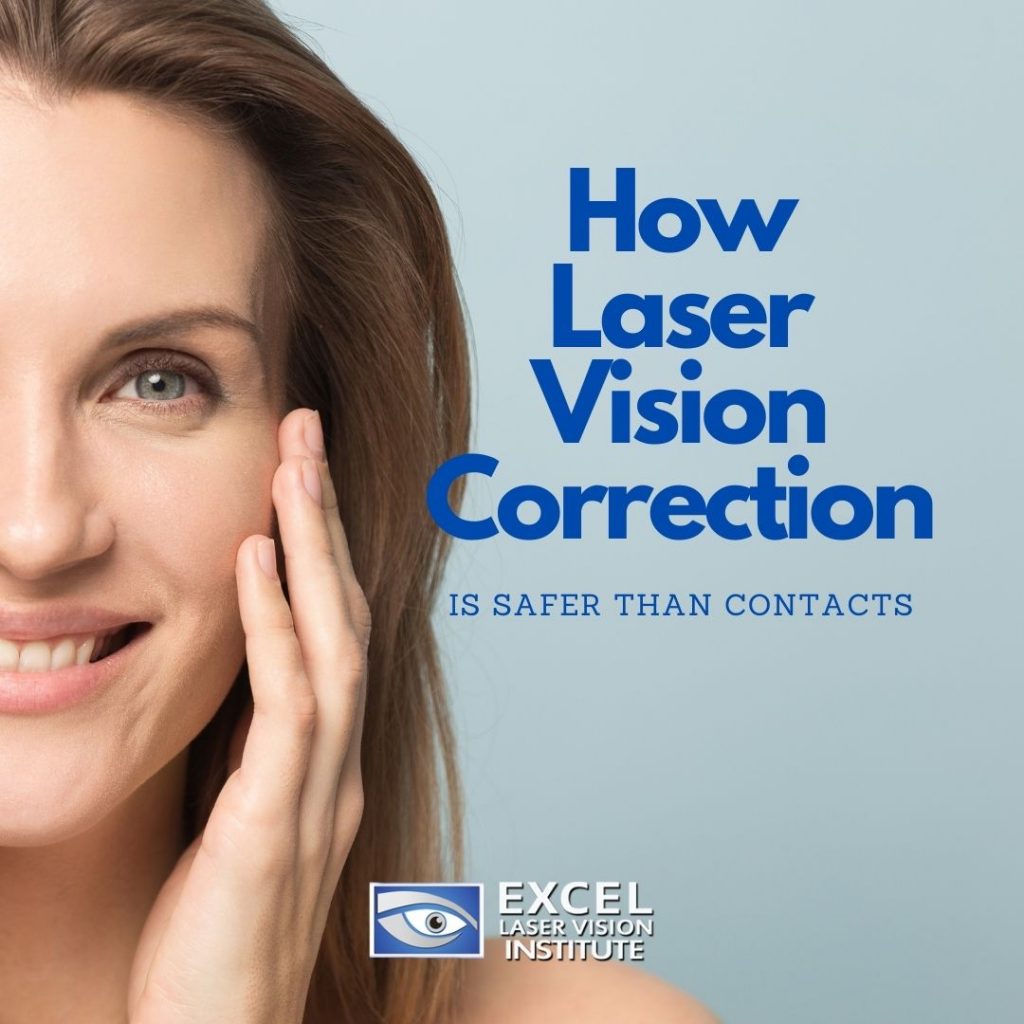
The reason that LASIK is recommended over contact lenses is that, once performed, laser vision correction requires no maintenance. Contacts, however, must be continuously applied, removed, cleaned, and so on. According to Doctor Moosa, one of the best LASIK surgeon in Orange County, those who wear contacts risk developing an infection from constant hand-eye contact. Recent studies show that 40-90% of contact lens wearers don’t follow proper care directions. One reason for this is that people lead busy lives and often forget to maintain their contacts as they should. This can have drastic impacts on a person’s ocular health. Here are some of the ways you risk infection when wearing contacts:
- Touching eyes with contact solution bottles
- Touching eyes with unwashed hands
- Improperly disinfecting lenses
- Storing lenses wrong
- Wearing contacts too long
Even when following proper care instructions, contact wearers cannot completely eliminate the risk of infection. Contact-related infections can arise as a result of microbes in your tears, your immune system, and hygiene habits. In many ways, getting laser eye surgery from a clinic in Orange County can save you the trouble and worry of these risks.
LASIK Surgeons Near Me
When you visit a LASIK clinic in Orange County like Excel Laser Vision Institute, you will be given a comprehensive eye exam and consultation before you are determined to be eligible for laser eye surgery. This ensures that your procedure runs smoothly and you receive the best possible results to achieve your vision goals. LASIK surgeons have extensive training and certification in order to perform the procedure and they have state-of-the-art technology that ensures precision and safety. Most people who receive LASIK can achieve 20/20 vision or better and no longer have a need for wearing contacts or glasses. This significantly reduces the risk of eye infections or any other health complications as a result of eye contamination.
According to researchers, the complication rate for LASIK surgery rests at less than 1%. Laser eye surgery has a long history of practice and a high satisfaction rate among patients. This refractive surgery is also more affordable than ever with available financing packages and promotions at certain clinics. Now that LASIK is more readily available, more people are able to enjoy its benefits. LASIK allows greater freedom for those with a busy lifestyle or who seek to participate in active careers and hobbies. Whether you’re tired of your contacts or you just want to live a more spontaneous life, laser eye surgery can help you achieve those goals.
If you are interested in LASIK, you can schedule an appointment at the Excel Laser Vision Institute, one of the best laser eye surgery clinics in the Orange County and Los Angeles area. With a team of experienced staff and a Harvard-trained surgeon, you will receive the most care and attention possible. Start your LASIK journey today and achieve your vision goals!
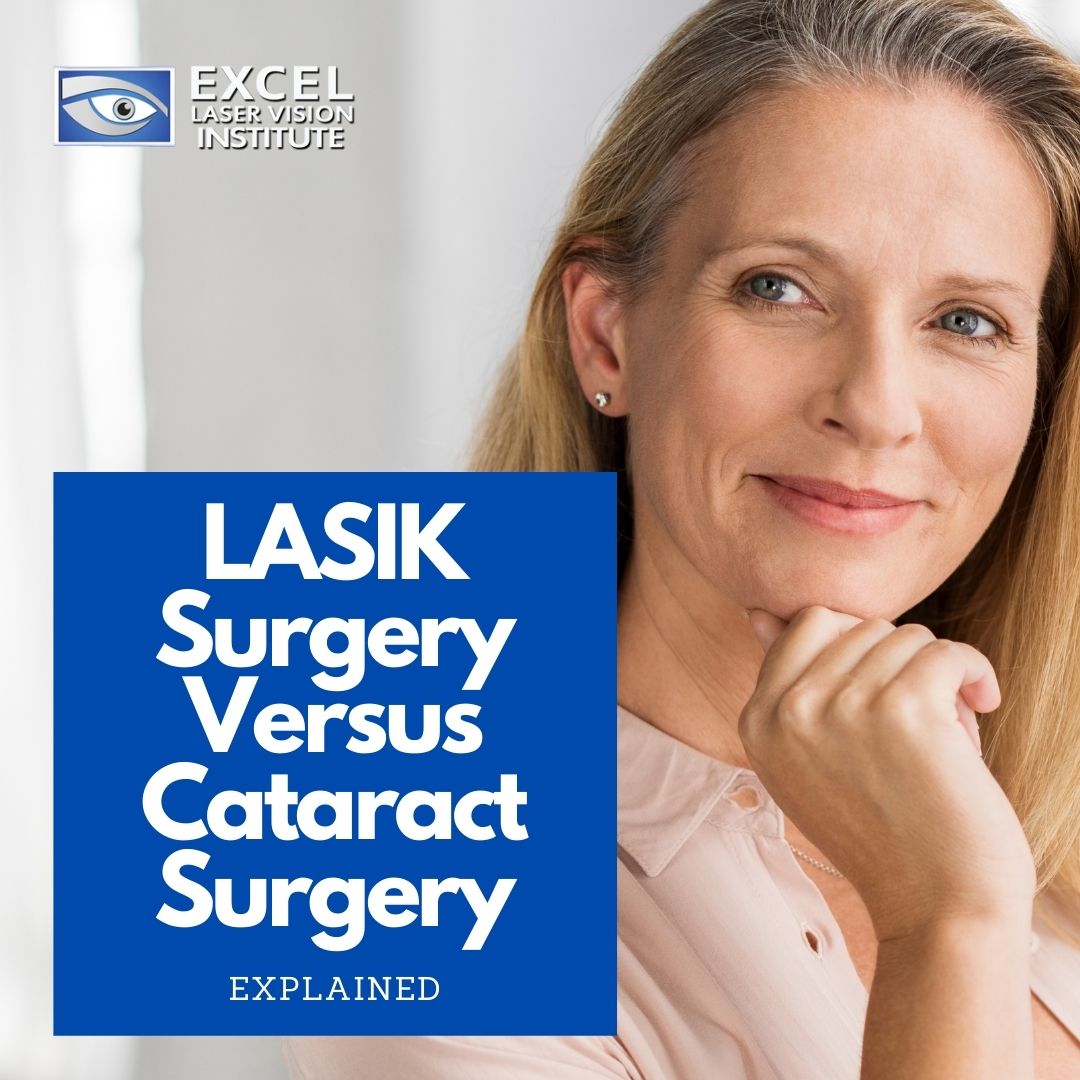
LASIK Surgery Versus Cataract Surgery Explained
While LASIK and cataract surgery are probably two of the most popular corrective eye surgeries in Los Angeles, many people forget how to distinguish the two procedures from one another. The fact is that each of these works to solve a problem in the eye and can result in better visual acuity for the patient; however, they require different methods and cater to different eye conditions.
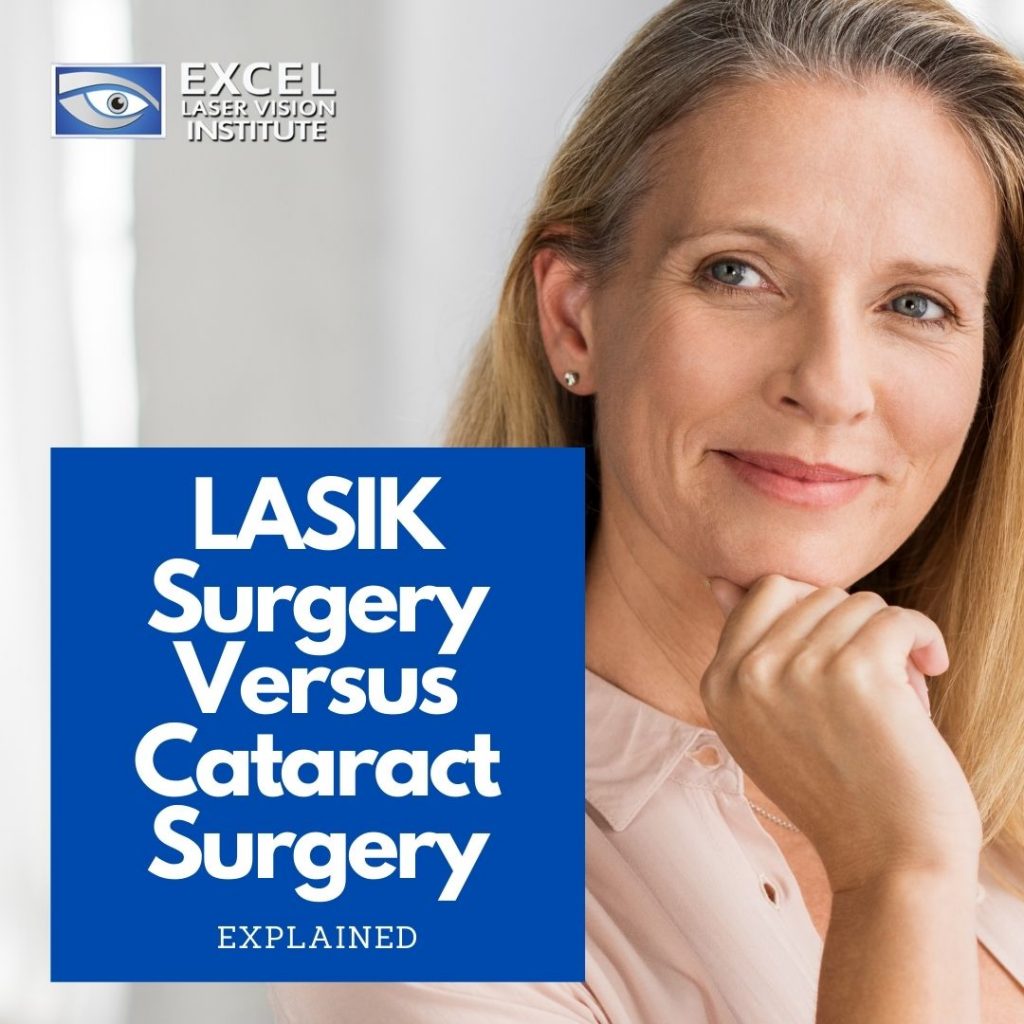
What conditions does each corrective eye surgery treat?
LASIK eye surgery is known for improving the vision of patients with astigmatism, nearsightedness, and farsightedness. Typically, patients who receive LASIK or an alternative laser vision correction are doing so to fix their natural prescription. Many LASIK patients are able to achieve 20/20 vision or better and become independent from the use of glasses or contacts.
Cataract surgery is a specialized form of corrective eye surgery used to treat cataracts. Many people naturally develop cataracts, which contribute to eye lens clouding, as they get older. This cloudiness can cause blurred or hazy vision that makes it difficult to see. Besides age, some other causes of cataracts include heredity, UV radiation exposure, eye trauma, medications, diabetes, and other eye diseases. If not treated, cataracts can eventually cause blindness. Yearly exams with your eye care professional ensure that cataracts are discovered early and treated when necessary.
How does each corrective eye surgery work?
LASIK eye surgery is completed with state-of-the-art laser technology that can precisely reshape the tissue in the cornea. This laser modification of the cornea allows light to better focus through the eye and thus improves vision.
When you’re receiving cataract surgery in Los Angeles, you will notice a different method. Eye surgeons remove the cloudy natural lens of the patient and replace this with an artificial intraocular lens or IOL. This method eliminates cataracts from further impeding vision and can improve close-up and distance vision, spending on the IOL.
How long does LASIK last compared to cataract surgery?
According to eye care professionals, LASIK eye surgery takes around 10 minutes per eye and both eyes can be performed on the same day. A cataract surgery appointment can as long as 20 minutes, depending on the severity of cataracts, and will only focus on one eye at a time. Many clinics will wait a few days, until the first eye has healed, until performing cataract surgery on the second eye.
LASIK Surgery vs. Cataract Surgery
Both LASIK and cataract surgery are incredible procedures that have helped many people treat their vision problems and achieve their vision goals. Some patients can even have both procedures completed in their lifetime! If you still have questions about these procedures, then make sure to schedule an appointment with your eye care professional to have a comprehensive eye exam and discuss your vision goals. After a thorough analysis of your eye condition and health, your doctor will be able to tell you if your vision qualifies you for one or the other and be able to help you prepare for the surgery.

